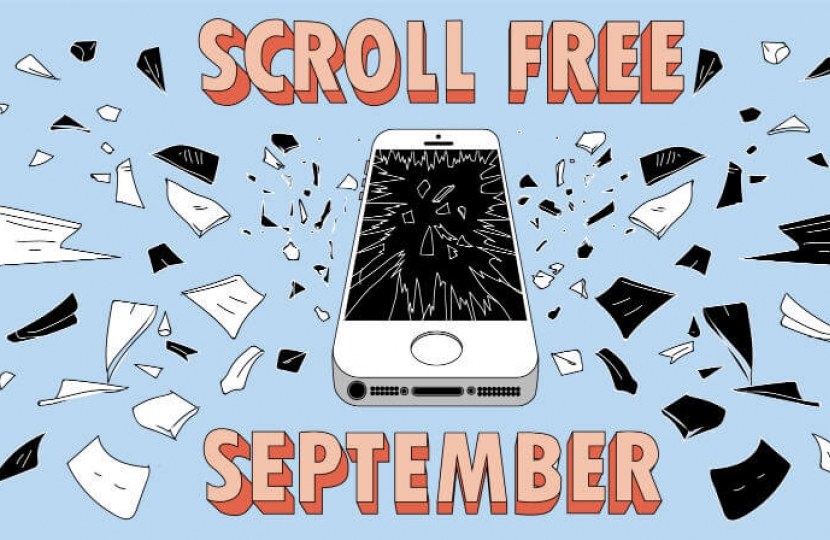
Victoria Prentis MP backs social media blackout campaign to improve mental health and wellbeing
Vice-chair of the All-Party Parliamentary Group on Social Media and Young People’s Mental Health and Wellbeing, Victoria Prentis MP said she is “really pleased” that she is able to lend her support to the Scroll Free September campaign. Run by the Royal Society for Public Health (RSPH), the initiative asks users to stop or cut down use of all personal social media accounts on platforms such as Facebook, Instagram and Twitter for the month.
The initiative follows the publication of the RSPH’s #StatusofMind report in 2017, which found that although social media has a range of both positive and negative effects on the mental health and wellbeing of young people, the net effect is currently negative. Many users find that regular use of social media can lead to heightened feelings of anxiety and depression, poor sleep, body image issues and fear of missing out (FoMO).
Like other public health awareness months, such as Dry January and Stoptober, participation in Scroll Free September will be a challenge, especially for young people raised with technology ever-present in their lives. Half of 18-34 year olds say going completely cold turkey will be ‘hard’ or ‘impossible’, and one in 10 18-24 year olds think it will be ‘impossible’.
Victoria Prentis MP said:
“I am really pleased that I am able to lend my support to Scroll Free September. I am an active user of social media, given my role as a Member of Parliament so I am sure the first few days of the blackout will be a challenge. However, as the mother of teenage daughters I am only too aware of the negative impact social media can have on the mental health and wellbeing of children these days. Initiatives like Scroll Free September provide a welcome opportunity for users to reflect and to build a healthier, more balanced relationship with social media. I would encourage my constituents to get behind the campaign too!”
Announcing the campaign, Shirley Cramer CBE, Chief Executive of RSPH, said:
“Social media has become a part of almost everyone’s life, revolutionising the way we communicate and share information. It has great potential to have positive impacts on mental health and wellbeing by connecting people in new ways. However, as our #StatusOfMind report showed, for many of us, especially our young people, the overall impact on mental health and wellbeing may currently be a detrimental one.
“Scroll Free September offers us all the opportunity to take back control of our relationship with social media, whether you choose to go cold turkey, or just abstain at social events or in the evening. The aim is that by the end of the month, we will be able to reflect back on what we missed, what we didn’t, and what we got to enjoy instead of scrolling through our newsfeeds. That knowledge could help us build a healthier, more balanced relationship with social media in the future.
“Of course, we know this will be a challenge because of the addictive nature of social media technology, which is why we need to work closely with the Government and the social media industry to create an online environment that is more conducive to positive mental health and wellbeing. The ongoing work of the APPG on Social Media and Young People’s Mental Health and Wellbeing will play a vital part in this.”
Claire Murdoch, NHS England’s national director for mental health, said:
“Scroll Free is right to highlight growing concerns that social media is contributing to increasing mental health issues in young people and a major ramp up of services will be needed to deal with the problems as part of the NHS 10 year plan. We need to see concerted action, with everyone taking responsibility, including social media giants, so the NHS is not left to pick up the pieces of a mental health epidemic in the next generation.”
Find out more and sign up to take part in the campaign from 27 July at www.scrollfreeseptember.org.
